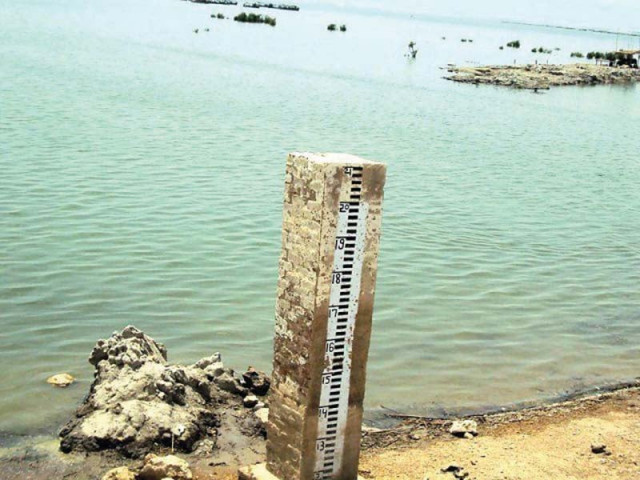SC defines measures for alleviating contamination of Manchar Lake
Authorities directed to ensure regular monitoring of filtration plants, disposal of solid waste

The judges observed that the problem of contamination in the lake will only be resolved when the Right Bank Outfall Drain (RBOD) project will be completed and the contaminated water is disposed of in the sea. PHOTO: FILE
At the outset of the hearing, the bench, comprising justices Amir Hani Muslim and Qazi Faiz Isa, directed the provincial chief secretary, Rizwan Memon, to include the irrigation department secretary in the taskforce assigned the mitigation of increasing contamination in Manchar Lake and another committee that has been tasked to revive the non-functional water filtration plants across the province.
Water supply: Probe likely against Sindh high-ups
The bench directed the irrigation secretary to ensure regular monitoring of the restoration works using modern technology.
Justice Isa directed the authorities to ensure that photographs or videos were made on the spot, reflecting the condition before and after measures were taken. He further ordered that water samples be regularly collected from the lake and get tested by the same laboratory to reach a conclusion about whether or not such efforts were yielding positive results in controlling the level of contamination.
The judges observed that the problem of contamination in the lake will only be resolved when the Right Bank Outfall Drain (RBOD) project will be completed and the contaminated water is disposed of in the sea. However, they said, measures to stop dumping of untreated industrial effluent and sewerage through regular monitoring will help minimise the pollution level.
SC orders removal of KWSB managing director, secretaries
Justice Hani also directed the chief secretary to include the director-general of the Sindh Environmental Protection Agency in the task force. The court ordered that a competent and eligible officer should be appointed on the post.
Justice Isa further said that the same method should be applied in disposal of solid waste, including the hazardous hospital waste, which will ensure proper monitoring of the efforts and achieve positive results.
"We do not want miraculous results but we want to see positive results," the judge told the authorities, noting that the 70-year-old problem will take time to heal but can be solved through strict monitoring.
Judicial commission submits report after six-week-long fact-finding mission
The bench further directed the irrigation secretary to submit periodical reports supported by documentary, video and pictorial evidences to the judicial commission and the SC for perusal.
The bench members told the chief and irrigation secretaries to hire any young person, instead of any 'tired' secretary, to efficiently perform this task of field monitoring. They added that the person hired should be equipped with requisite facilities.
Meanwhile, Chief Secretary Rizwan Memon informed the bench that the provincial government will pay Rs30 million to the water experts who had assisted the judicial commission in inquiry into non-supply of clean drinking water, worsening sanitation and its impact on the environment.



















COMMENTS
Comments are moderated and generally will be posted if they are on-topic and not abusive.
For more information, please see our Comments FAQ